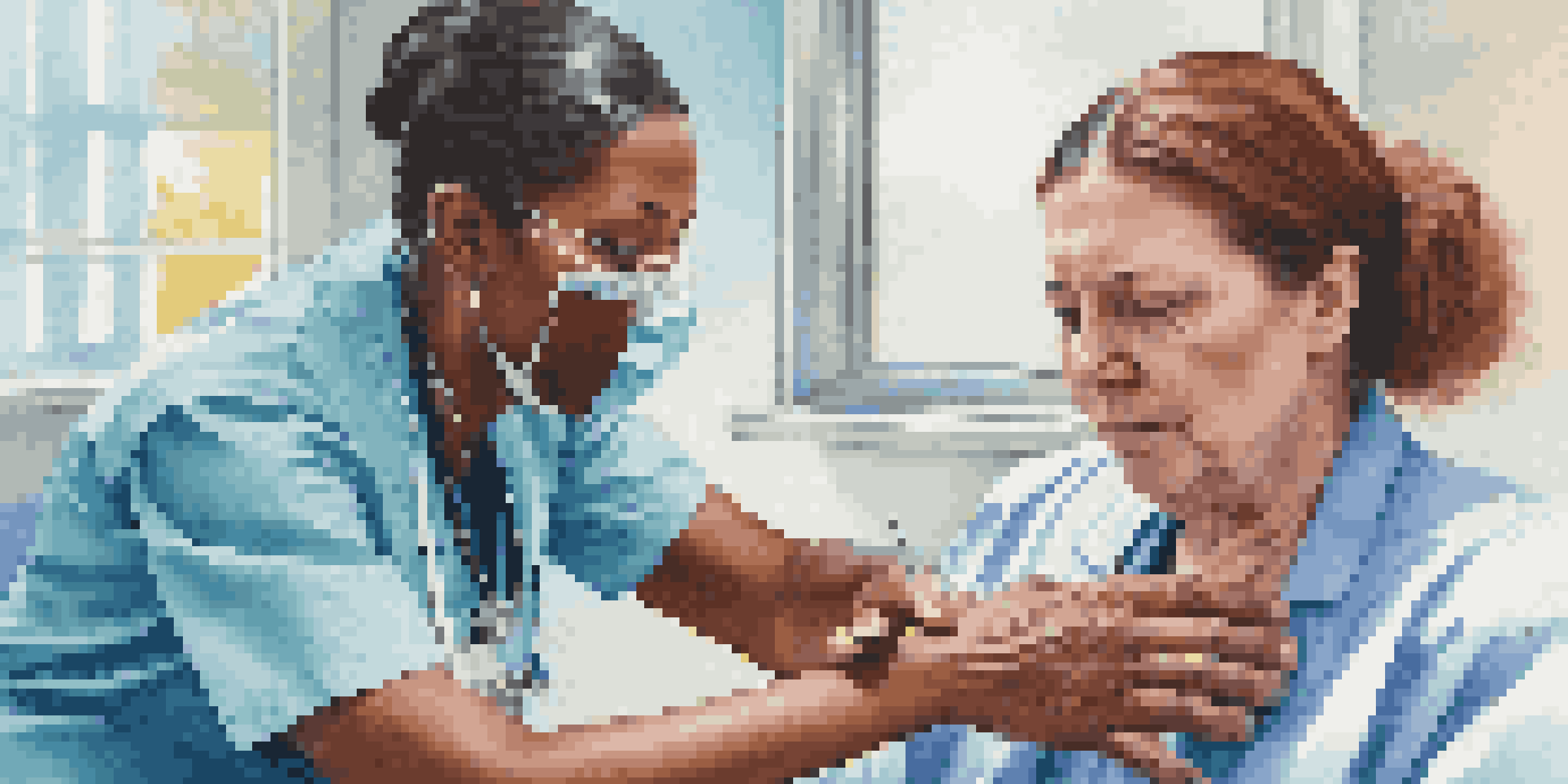Understanding Vaccination Benefits: Personal and Community Health

What Are Vaccinations and How Do They Work?
Vaccinations are medical treatments designed to stimulate the immune system. They introduce a harmless component of a virus or bacteria, prompting the body to build immunity. Think of it as a practice run for your immune system, preparing it to fight off real infections in the future.
Vaccines are the tugboats of preventive health.
The process typically involves a vaccine that contains antigens, which are parts of the pathogen. When vaccinated, your body recognizes these antigens and produces antibodies to combat them. This means that if you encounter the actual virus later, your immune system is ready and capable of defending you.
Additionally, vaccinations can lead to herd immunity. This occurs when a significant portion of a community becomes immune, reducing the spread of disease and protecting those who are unable to be vaccinated, like infants or individuals with certain health conditions.
The Personal Health Benefits of Vaccination
On a personal level, vaccinations significantly decrease the risk of contracting various infectious diseases. For example, the measles vaccine has been shown to reduce the incidence of this highly contagious disease by over 90%. By getting vaccinated, you not only protect yourself but also contribute to your overall health and well-being.

Moreover, vaccinations can prevent severe complications associated with certain diseases. For instance, the flu vaccine can help reduce the risk of hospitalization due to flu-related complications, especially for vulnerable populations like the elderly or those with chronic conditions.
Another personal benefit is the peace of mind that comes from being vaccinated. Knowing that you are taking proactive steps to protect your health can alleviate anxiety about potential infections, allowing you to focus on enjoying life without the constant worry of illness.
Community Health: The Ripple Effect of Vaccination
Vaccination is not just about the individual; it plays a crucial role in community health. When more people are vaccinated, the likelihood of disease outbreaks decreases. This collective immunity protects those who cannot be vaccinated, including newborns and individuals with weakened immune systems.
An ounce of prevention is worth a pound of cure.
For example, during outbreaks of preventable diseases, communities with high vaccination rates tend to experience fewer cases. This demonstrates how vaccines can create a safer environment for everyone, contributing to public health stability and resilience.
Furthermore, maintaining high vaccination coverage helps reduce healthcare costs for communities. Fewer outbreaks mean less strain on hospitals and healthcare resources, allowing funds to be allocated to other essential services, such as education and preventive care.
Addressing Common Misconceptions About Vaccination
Despite the overwhelming evidence supporting vaccinations, many misconceptions persist. One common myth is that vaccines cause the diseases they are meant to prevent. In reality, vaccines contain inactivated or weakened pathogens that cannot cause disease in healthy individuals.
Another misconception is the belief that natural immunity is better than vaccine-acquired immunity. While natural infections can lead to immunity, they often come with severe health risks, including hospitalization or even death. Vaccines provide a safer alternative to develop immunity without enduring the full brunt of an illness.
Education is key in combating these misconceptions. Open conversations about vaccines can help clarify doubts and provide accurate information, empowering individuals to make informed decisions for their health and the health of their communities.
The Role of Healthcare Professionals in Promoting Vaccination
Healthcare professionals play a pivotal role in promoting vaccination. They are often the primary sources of information for patients, providing guidance on vaccine schedules and the importance of staying up-to-date. Their recommendations significantly influence individuals' decisions to vaccinate.
Additionally, healthcare providers can address concerns and questions about vaccines, helping to dispel myths and misconceptions. By engaging in open dialogues and sharing evidence-based information, they build trust with patients, paving the way for informed choices.
Moreover, healthcare professionals can implement reminder systems to encourage patients to get vaccinated. These proactive measures can enhance vaccination rates within communities, ultimately contributing to improved public health outcomes.
Global Vaccination Efforts and Their Impact
Globally, vaccination efforts have made significant strides in reducing infectious diseases. Initiatives like Gavi, the Vaccine Alliance, have worked tirelessly to improve access to vaccines in low-income countries, saving millions of lives. These efforts highlight the importance of global cooperation in combating diseases.
For instance, the global response to the polio epidemic has led to a dramatic decrease in cases worldwide. By focusing on vaccination campaigns, many countries have successfully eliminated polio, showcasing the power of collective action in achieving public health goals.
Moreover, global vaccination efforts help prevent the emergence of new outbreaks. By maintaining high vaccination rates, nations can protect themselves from diseases that may re-enter due to international travel, ensuring a healthier future for all.
The Future of Vaccination: Innovations on the Horizon
As science and technology advance, the future of vaccination looks promising. Researchers are exploring new vaccine technologies, such as mRNA vaccines, which have shown remarkable efficacy in recent years. These innovations could lead to more effective vaccines with fewer side effects.
Moreover, ongoing research is focusing on developing vaccines for diseases that currently lack effective prevention methods, such as certain types of cancer. This could revolutionize how we approach disease prevention, expanding the scope of vaccinations beyond infectious diseases.

Additionally, public health initiatives are increasingly emphasizing the importance of education and accessibility in vaccination programs. By ensuring that vaccines are available to everyone, regardless of location or socioeconomic status, we can build a healthier, more resilient global community.